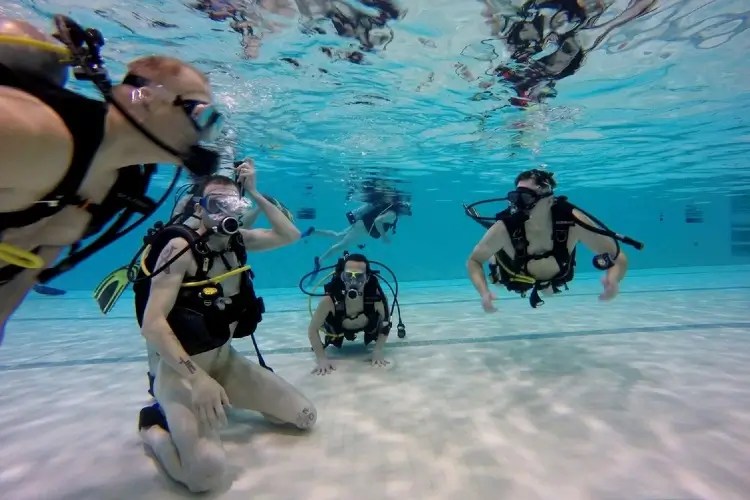The pursuit of an unencumbered connection with the marine environment has led some enthusiasts to explore scuba diving without traditional protective gear. This specialized form of underwater exploration, often termed "naked scuba diving," presents a unique set of challenges and considerations that extend far beyond personal preference. Understanding these crucial elementsfrom safety protocols to legal implications and environmental ethicsis paramount for anyone contemplating such an immersive experience.
Editor's Note: Published on 2023-10-27. This article explores the facts and social context surrounding "what you need to know before your own naked scuba dive".
The Allure and Its Practicalities
The appeal of diving without a wetsuit often stems from a desire for ultimate freedom and a more direct, sensory experience of the underwater world. Proponents speak of an unparalleled connection to the water, unhindered by layers of neoprene, allowing for a heightened sense of touch and movement. This intimate form of diving is not, however, a simple matter of shedding clothing. It demands a meticulous approach to preparation and execution, as the absence of a wetsuit impacts numerous aspects of the dive, from buoyancy to physical protection.
"While the concept of unburdened aquatic exploration is ancient, applying it to modern scuba diving introduces complex variables. It requires a fundamental shift in how a diver approaches safety, equipment, and interaction with the environment," noted Dr. Eleanor Vance, a marine anthropologist specializing in human-ocean interactions.
Safety, Legality, and Environmental Stewardship
The decision to dive without a wetsuit immediately introduces significant safety considerations. Thermal regulation becomes a primary concern; even in seemingly warm waters, prolonged exposure can lead to hypothermia. The skin, unprotected, is also highly vulnerable to sun exposure before and after the dive, as well as potential abrasions from equipment, sharp coral, or encounters with stinging marine life. Cuts and scrapes, minor when covered, can become more problematic when exposed to saltwater for extended periods.
Legally, the landscape for naked scuba diving is highly variable. Many public waterways, particularly those frequented by families or near populated areas, have explicit or implicit regulations regarding public nudity. Divers must meticulously research and adhere to local laws and ordinances, which can differ significantly between countries, states, and even specific dive sites. Private charters or remote, designated natural areas might offer more leeway, but even there, consent and discretion remain critical. Navigating these legal complexities requires diligent homework to avoid unintended legal repercussions.
Environmental responsibility is another non-negotiable aspect. Without the protective barrier of a wetsuit, divers might be more prone to inadvertently brushing against delicate corals or disturbing sedentary marine life. A heightened awareness of body position and absolute mastery of buoyancy control are not merely desirable but essential to prevent damage to fragile ecosystems. The ethos of "take nothing but pictures, leave nothing but bubbles" becomes even more critical when the human body is in direct contact with the environment.

